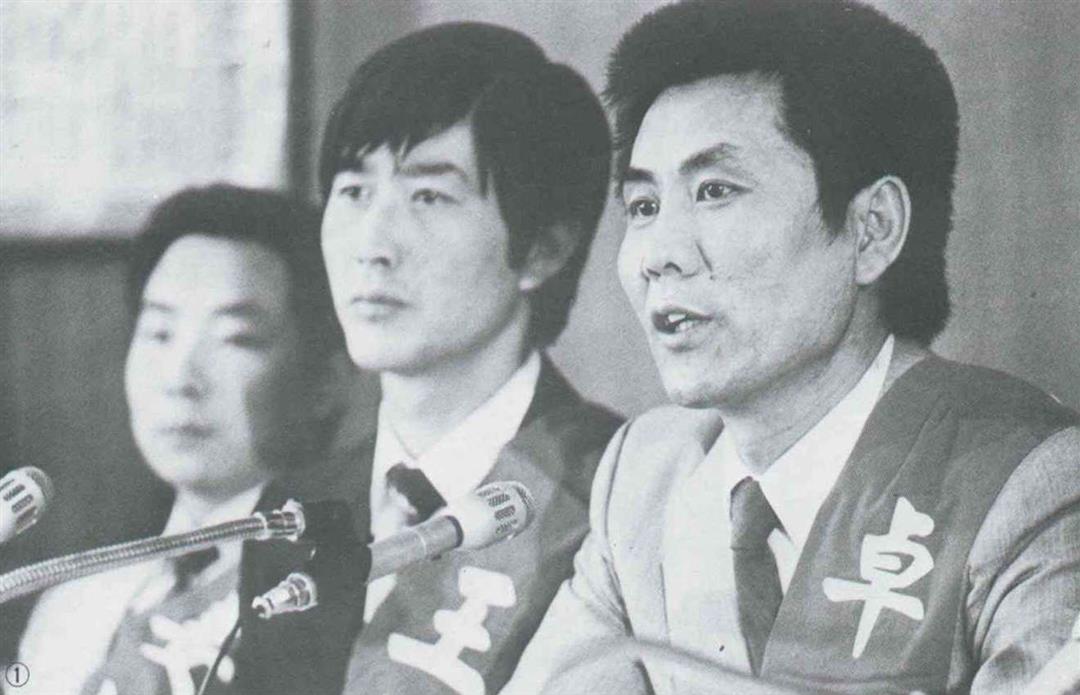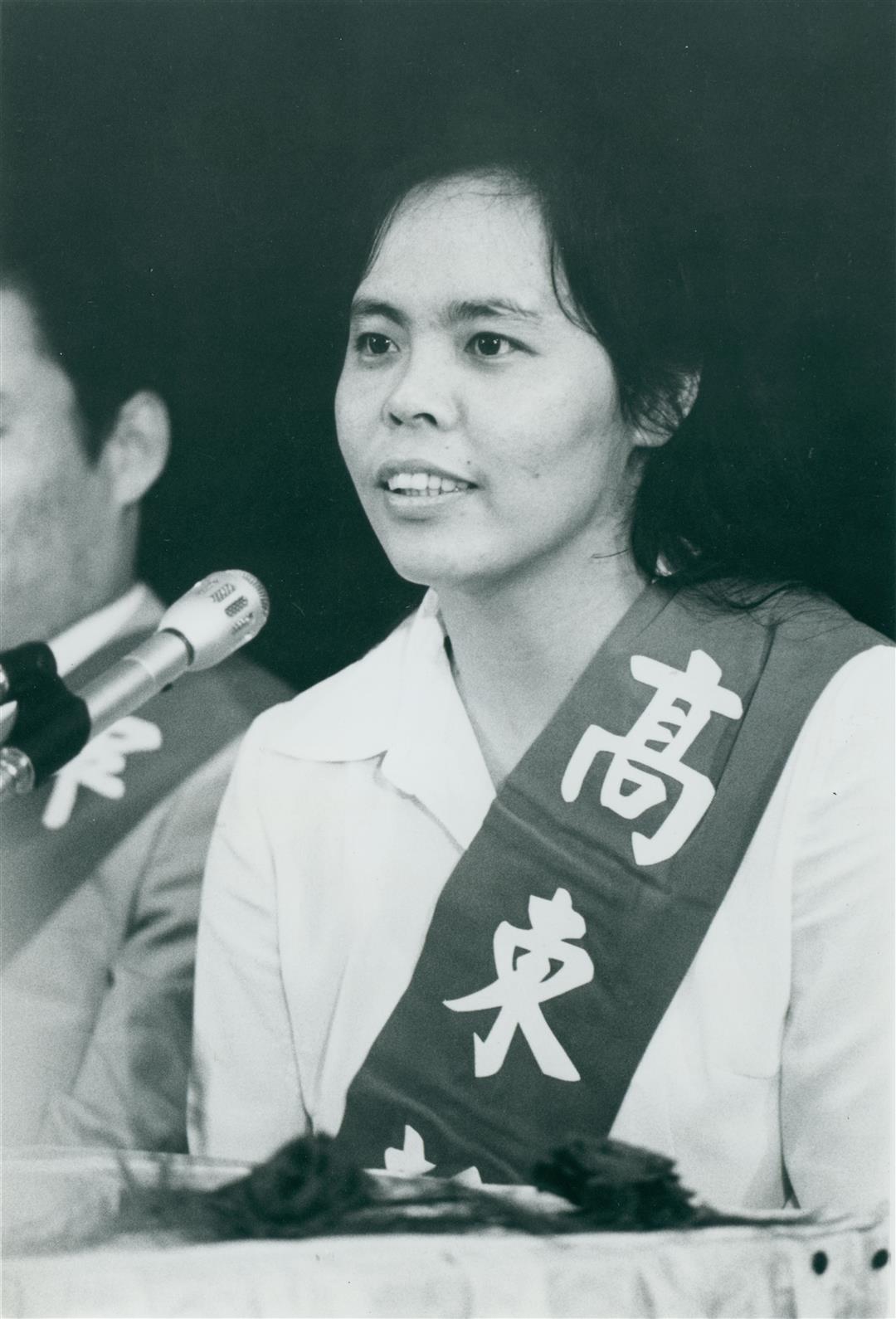From a humanitarian standpoint, it is this earnest desire to lead a life in a free, democratic society that has earned the people's sympathy.
Finally after one year, three months and one week the six patriots finally realized the fulfillment of their long cherished dream--their sentences were suspended and they were allowed to go to their homeland, the Republic of China.
On August 13, the six patriots, under strict security were escorted to the land of their dream, the Republic of China. After a warm reception, the six participated in a press conference sponsored by the Free China Relief Association (FCRA).
During the press conference Cho Chang-jen 37, Wang Yen-ta 28, Chiang Hung-chun 24, and the only woman among the patriots, Kao Tung-ping 29 spoke of their feelings and reactions to the past year. Wu Yun-fei 36, and An Chien-wei 25 also attended, but did not speak.
Cho Chang-jen, the leader of the group, was an eloquent spokesman for the six. His powerful, clear delivery did not falter at any time, and he displayed the strong, cool qualities that helped to make their momentous flight to freedom a reality.
He opened his remarks by expressing his thanks to the government of the Republic of China, to Chinese citizens both at home and abroad and the ambassador to South Korea, Hsueh Yu-ch'i and the embassy staff. Cho stressed, because of this support, their flight to freedom was able to be realized. He continued by saying that the six were impressed by the progress of the society in the Republic of China. The contentment and smiles on the faces of the people were something that could not be seen in mainland China. Cho, in describing the aspirations of his oppressed compatriots on the mainland said, "The desire of the people on the mainland is freedom, they hope to use all opportunities to search and strive for freedom. Their every minute is filled with the hope that the Republic of China will bring them freedom and happiness. While we were still on the plane, many other passengers said, 'If not for arranging it earlier with my family, I would really go with you.' This served to reinforce our determination in our flight to freedom."
In discussing the policies of the mainland, Cho said that everybody knows that they must learn from Taiwan both politically and economically.
Speaking about the future, Cho pointed out that because of the Cultural Revolution and its devastating social effects, they all suffered educationally. He hoped the younger members could seek educational opportunities while he himself hoped to pursue his goal for the reunification of China in work related to the Three Principles of the People.
Wang Yen-ta, his voice choked with emotion, best summed up their plight by saying, "This past one year, three months and nine days we felt just how difficult this struggle for freedom and democracy was."
The following morning the six met with President Chiang Ching- kuo, whose kind, warm manner helped to make the six patriots feel at home.
The struggle that began 467 days earlier has ended on a happy note for the six freedom seekers. This proves that the diligent efforts of the people are not in vain. Now, in adapting to their new life in the Republic of China, it is hoped the courageous six can realize the ideals they have so long struggled for.
[Picture Caption]
1. The six posed for a group photo when they met with President Chiang Ching-kuo.
1. During the press conference, Cho Chang-jen (right), spoke with eloquent force, while Wang Yen-ta's emotional delivery moved the public. 2. Kao Tung-ping, the only female among six expressed her heartfelt appreciation to everyone for their support and assistance.

1. During the press conference, Cho Chang-jen (right), spoke with eloquent force, while Wang Yen-ta's emotional delivery moved the public.

2. Kao Tung-ping, the only female among six expressed her heartfelt appreciation to everyone for their support and assistance.